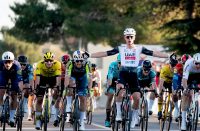For many years, athletics has been the sport most affected by doping cases. With its many disciplines, it became the number one sport of the Olympic Games, but also the most closely watched. And for good reason! The number of cases revealed in 2022 is the highest from the eight years in which we have updated this “barometer”.
Let’s recall that this count only takes into account cases revealed by federations, anti-doping agencies, the courts, or the press. We also only take into account procedures related to high-level or professional athletes. Since 2018, we have included cases of fraud and corruption that concern the often-close staff of the athletes, but also match-fixing that may involve athletes directly.
We also distinguish the samples reanalysis which have multiplied in recent years from the usual controls.
As an example, the legal retesting period for samples collected during the London 2012 Olympic Games has just ended. After a decade of proceedings, 73 new cases of doping were uncovered. 31 Olympic medals were taken away. 7 of the 8 titles won by Russia in athletics were canceled!
At the end of 2022, Russia was once again on the top step of the most damaged countries in terms of credibility. The podium was identical to that of last year. We may also see it as the illustration of the efforts – forced or voluntary – made by three nations: Russia, the United States and Italy, who are much more combative against doping than they were in the past. One finds only when he seeks. The same applies to Kenya, whose authorities have just avoided a suspension of the country from major international events. The specificity of this country, which sits 4th in our ranking, is that 100% of the 29 cases revealed in 2022 came from athletics, mainly from specialists in marathon and half-marathon, the most lucrative events in athletics.
CONTRASTING RESULTS FOR CYCLING
Cycling also recorded 29 cases in 2022, spread over 15 different countries. Sexes and disciplines taken together, this is the second worst score in eight years (after 2019).
However, a closer analysis reveals that, if we limit ourselves to professional men (World teams and Pro teams), this is actually the lowest number (2 cases) ever recorded since the Festina affair!
The MPCC notes that although one of the two cases involved Nairo Quintana (for use of tramadol, a substance that led to his disqualification from the Tour de France by the UCI, but no suspension), his team nevertheless remained in compliance with the rules of our movement, as the rider was immediately banned from competition by his team Arkéa-Samsic, which did not keep him on the squad at the end of the season.
In compliance with our strict ethical rules, it should be added that no MPCC member team subsequently decided to hire the Colombian rider, and that this attitude seems to have become indispensable for everyone.
In 2022, the large majority of doping proceedings in top-level cycling concerned semi-professional men riders from continental road teams (12 cases). The Portuguese team W52-FC Porto was even disbanded after the police revealed possible organised doping.
None of the cases revealed among the continental teams concerned an MPCC member team. At the beginning of this year, our movement tallied 30 pro teams (men and women) and only 21 continental teams. We strongly encourage these semi-professional teams to join the MPCC, in order to put their ethics and credibility at the heart of our sport’s concerns.





